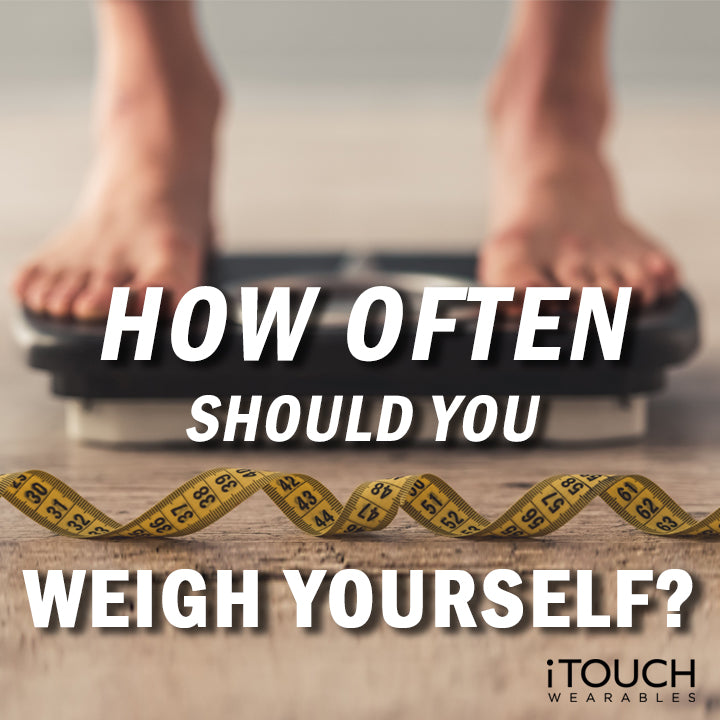
How Often Should You Weigh Yourself?
Let's have a chat shall we?
When I first approached wanting to write this piece, I am not going to lie, I was angry and a little nervous. Every time I start writing a piece like this, I often like to take time to do research to fully understand the intent behind answering the questions - as for myself and my readers, we can come to an almost perfect and scientifically backed-up statement or interpretation that often strives to have no bias behind it. However, with a topic like this, I found myself getting my emotions in the way of actually doing the research. In typing out the question in the title box, I wanted to immediately follow it with a "never," not in a way that you should totally ignore your health, but in a way that, if better written, more so was left up to you. It matters on your relationship with your body, with your health, and what you are comfortable doing. I find that my relationship with a scale is almost nonexistent, more so moving to that from being uncomfortable with it, and I try to take a stance on the body-positivity route more than anything else. So I say I am nervous because I was nervous about what I would read. Nervous that I would find pages upon pages of people writing in opposition to the movement, stating something along the lines of, "trying to lose those extra pounds around your waist, step onto the scale! Being familiar with what you weigh can determine whether you are healthy or not, and if you are above X pounds, it is time to maybe lose some weight." - Okay, so maybe not something exactly like that, but you get what I mean. I genuinely thought that people would write the need to weigh yourself on a scale daily to ensure that you are living your best and healthiest lifestyle.
In answering the question, I am going to say that without a doubt, it is up to those to choose the amount of times they weigh themselves on a scale. I believe that, however, you shouldn't fixate on the number. A number is just a number - they fluctuate, they change, they never remain constant. But if you want a scientifically backed up answer to that question, continue below:
Understand That Weight Changes - Even When Living The Healthiest Lifestyle You Can

Have you ever worked out, taken on a healthier diet, and have gone about making strides to lose weight but didn't see any results? It isn't a matter if you were doing your fitness goals correctly, but rather it is a result of how your body reacts to these new things. Not losing weight doesn't mean you aren't getting healthier, but can be the cause of changes within your body or even a number of different factors.
For example, weight can fluctuate due to the amount of water in your system and how hydrated you are. It can change due to what you recently ate. Weight can also change depending on your bathroom habits, the climate, and even your workout routine. A few pounds that result from weight fluctuation aren't a sign of whether or not you gained fat, but rather it shows how your body is reacting to the physiological changes that are taking force inside of you and what it needs to do to regulate these changes.
If you are stressed or even not getting enough sleep can affect your weight. Stress releases cortisol, which can degrade the muscle tissue in our bodies. Excessive levels of cortisol can also encourage the storage of body fat, which can add on a few pounds. When it comes to sleep, getting enough can help release the Growth Hormone in our bodies, that can do the opposite of cortisol. GH can be effective in actually decreasing the storage of fat in our bodies, while supporting our immune systems. When it comes to maintaining your body weight, it is important to make sure that all of these are considered before stepping on the scale.
How Often Should I Weigh Myself?

The real question to ask is, "is stepping on the scale going to be healthy or harmful to me if I do it daily, weekly, monthly, etc?" Truthfully, there is no perfect answer to how often you should weigh yourself on a scale, ultimately coming down to how it will motivate you and will remain helpful to your fitness or health goals. In really breaking down the possibilities, this is what I have to say:
- Weekly Weigh-Ins - To me, this seems like the most reasonable one. Weighing yourself weekly allows you to check-in with yourself once a week while not being fixed on the scale for the rest of the six weeks. It is an easy way to track your strides, not worrying about how your weight is fluctuating due to the factors above. For the best results, pick a day in the week where you know you'll remain constant. You'll be able to look at trends within your weight as well.
- Occasional Weigh-Ins - Occasional weigh-ins seem to work for those who rely on every now and then stepping on the scale or going to the doctor's to check their weight. Occasional weigh-ins can go hand-in-hand with those who judge how they feel on the fit of their clothes or how they feel when working out.
- Never Weighing In - There are several people who never want to weigh themselves and that is perfectly fine! For them, they judge themselves on how they feel, how their clothes fit, their diets, or whatever else works for them. They are focusing on their performance rather than their number. They understand that there is more to health than just a number on the scale.
To me, if you find yourself measuring yourself multiple times a day, it probably isn't healthy. There is no need to constantly be weighing yourself, as like I have researched, your weight is constantly changing, with many factors being outside of your control. Obsessing on the number that can appear on the scale can be detrimental to your own mental health, well-being, and happiness. If you want to weigh yourself, use it as a tool to help you and not harm you. Find what is helpful for you, your workout, fitness, and health needs. Everyone has their own means of motivation and inspiration, so do what works for you and stick with it.
Share with us what motivates you and your fitness goals by tagging us on Instagram @itouchwearables and Facebook @itouchwearables. Also, be sure to check out our new articles published daily!
-Patrick


